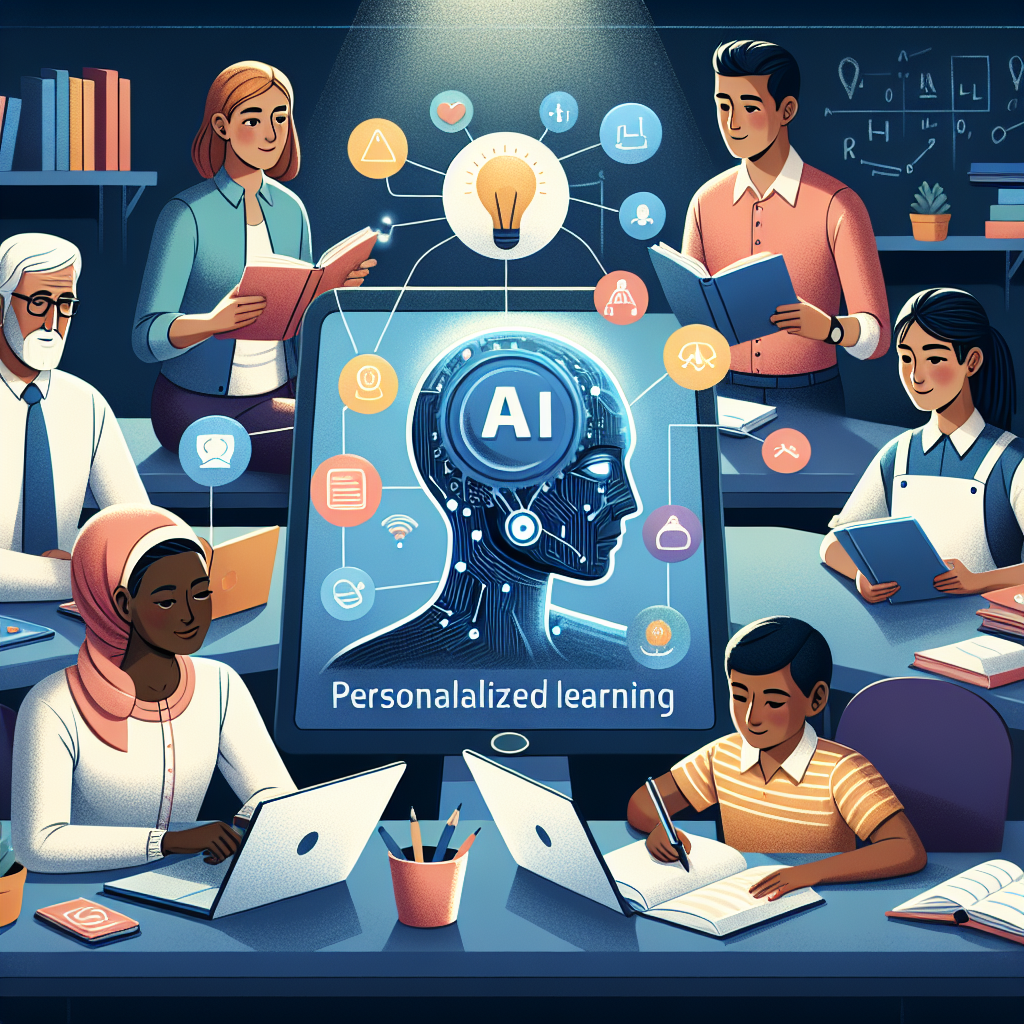In recent years, the education sector has been rapidly evolving with the integration of technology to enhance learning experiences. One of the most promising advancements in this field is the use of AI-driven solutions for personalized learning. Artificial Intelligence (AI) has the potential to revolutionize how students learn by providing tailored educational experiences that cater to individual needs and preferences.
AI-driven solutions for personalized learning utilize machine learning algorithms to analyze data on students’ learning patterns, strengths, and weaknesses. This data is then used to create personalized learning paths that cater to each student’s unique needs. By providing individualized instruction, AI-driven solutions can help students learn more effectively and efficiently.
One of the key benefits of AI-driven personalized learning is its ability to adapt to each student’s pace and learning style. Traditional one-size-fits-all teaching methods can leave some students behind or bore others who are ahead of the curve. AI-driven solutions can adjust the difficulty level of tasks, provide additional resources or support when needed, and offer feedback in real-time to help students stay engaged and motivated.
Furthermore, AI-driven personalized learning can also help educators by providing valuable insights into student progress and performance. By analyzing data on student learning outcomes, AI-driven solutions can help teachers identify areas where students may be struggling and provide targeted interventions to support their learning. This can help educators make more informed decisions about how to best support their students and improve overall learning outcomes.
Additionally, AI-driven solutions for personalized learning can also help students develop critical thinking and problem-solving skills. By providing opportunities for students to explore and apply their knowledge in real-world contexts, AI-driven solutions can help students develop a deeper understanding of the material and build valuable skills that are essential for success in the 21st century.
Despite the many benefits of AI-driven personalized learning, there are also some potential challenges and concerns that need to be addressed. One of the main challenges is ensuring that AI-driven solutions are used ethically and responsibly. There are concerns about data privacy and security, as well as the potential for bias in AI algorithms. It is important for educators and policymakers to carefully consider these issues and take steps to mitigate any potential risks.
Another challenge is ensuring that AI-driven solutions are accessible to all students, regardless of their background or resources. There is a risk that AI-driven personalized learning could exacerbate existing inequities in education if not implemented thoughtfully. It is essential for educators to consider how to ensure that all students have access to the technology and support they need to benefit from personalized learning.
Overall, the use of AI-driven solutions for personalized learning has the potential to transform education and provide students with more engaging and effective learning experiences. By harnessing the power of AI to tailor instruction to individual needs, educators can help students reach their full potential and prepare them for success in an increasingly complex and interconnected world.
FAQs
Q: How does AI-driven personalized learning work?
A: AI-driven personalized learning uses machine learning algorithms to analyze data on students’ learning patterns and preferences. This data is then used to create personalized learning paths that cater to each student’s unique needs.
Q: What are the benefits of AI-driven personalized learning?
A: Some of the benefits of AI-driven personalized learning include adaptability to individual learning styles, real-time feedback, and insights into student progress and performance.
Q: What are some potential challenges of AI-driven personalized learning?
A: Some potential challenges include concerns about data privacy and security, bias in AI algorithms, and ensuring that the technology is accessible to all students.
Q: How can educators ensure that AI-driven personalized learning is used ethically and responsibly?
A: Educators can ensure that AI-driven personalized learning is used ethically and responsibly by carefully considering issues of data privacy and security, addressing bias in algorithms, and ensuring that all students have access to the technology and support they need.
Q: What are some examples of AI-driven personalized learning tools?
A: Some examples of AI-driven personalized learning tools include adaptive learning platforms, intelligent tutoring systems, and personalized learning analytics systems.

